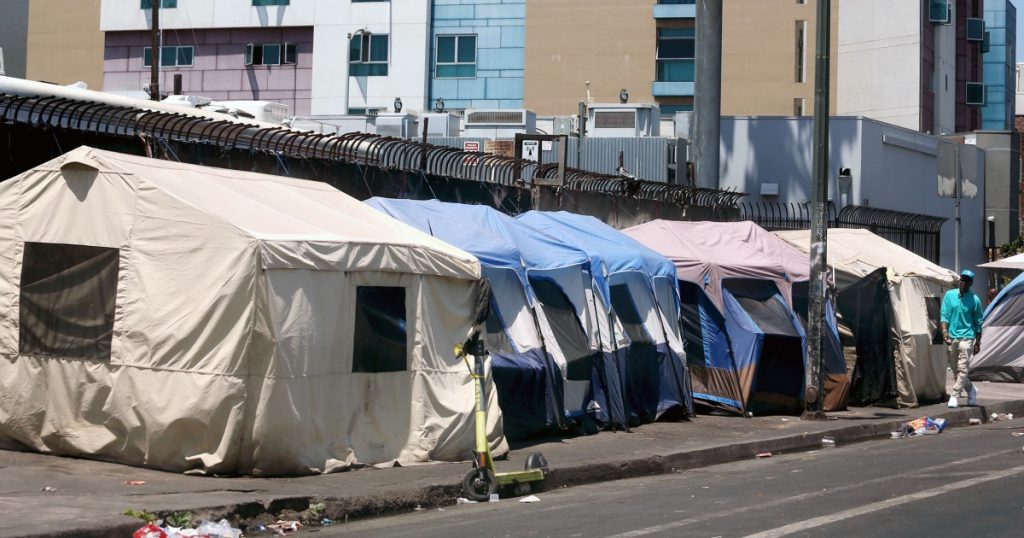Summarize this content to 2000 words in 6 paragraphs California Gov. Gavin Newsom on Thursday ordered state agencies to remove homeless encampments from public property in one of the most sweeping reactions to a U.S. Supreme Court ruling allowing such bans. Newsom said he issued the executive order because the makeshift camps, which lack electricity and running water, pose an urgent public health and safety hazard.The move was met with skepticism from homeless services providers who said it would do nothing to solve the crisis in a state with some of the most expensive housing in the country and with applause from some cities and counties that said they would follow suit and clear their own streets and sidewalks.”That has been the biggest concern all along,” said John Maceri, CEO of the Los Angeles-based social services provider The People Concern. “The broom theory of sweeping people from here to there, it doesn’t solve anybody’s problem.” The executive order requires state agencies, such as the California State Parks department, to prioritize clearing encampments that pose the greatest safety risks and directs them to provide notice and to connect people living in the encampments with service providers that can help them store their belongings for at least 60 days. “There are simply no more excuses,” Newsom said in his announcement. “It’s time for everyone to do their part.”Maceri said he was encouraged by Newsom’s emphasis on including service providers as part of the overall solution, but cautioned the order could embolden cities and counties that chose to criminalize homelessness. The governor’s office did not respond to a request for comment about where the homeless people would go once the encampments were cleared.California has the country’s largest homeless population, at 180,000, and it has poured $24 billion into cleaning up streets and finding housing for people, according to Newsom’s office.Despite those efforts, tents and cardboard shelters remain visible throughout the state in large urban centers, suburban cities and rural communities. Last month, Los Angeles City Council President Paul Krekorian released a video showing police officers from neighboring Burbank abandoning an injured homeless man outside his office, saying such acts of “dumping” were a growing problem in his district. Newsom’s order provides guidance to cities and counties, and some local officials said they would follow suit in light of last month’s Supreme Court decision, which rejected a constitutional challenge to ordinances in Grants Pass, Oregon, that punish homeless people for sleeping on public property. The justices ruled in favor of Grants Pass, saying the measures do not violate the Constitution’s Eighth Amendment barring cruel and unusual punishment.San Francisco Mayor London Breed said recently that her city will start an “aggressive” campaign next month to clear encampments. “San Francisco is already doing what the Governor is calling for, with efforts well underway since long before the Grants Pass ruling,” she said in a statement. “We’ve made significant investments in shelter and housing, and consistent daily outreach continues to offer services and support. This proactive approach has led to a five-year low in our street tent count.”In Los Angeles, Mayor Karen Bass responded to Newsom’s directive by saying the state’s largest city does not criminalize homelessness as a means to solve to the crisis. “For the first time in years, unsheltered homelessness has decreased in Los Angeles because of a comprehensive approach that leads with housing and services, not criminalization,” she said in a statement. “Strategies that just move people along from one neighborhood to the next or give citations instead of housing do not work.” In a social media post, former Los Angeles City Council member Mike Bonin said the order was “horrible,” while California Assembly Member Alex Lee said sweeping away encampments is both ineffective and “morally wrong.”But Los Angeles County Supervisor Kathryn Barger struck a different tone, applauding Newsom and saying state agencies have a duty to solve the crisis.


